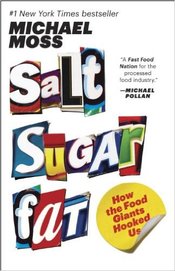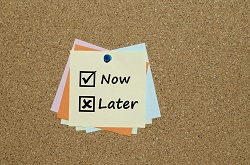 Isn’t this a great picture? There’s a clear path forward, but you can’t tell what’s ahead if you don’t move ahead.
Isn’t this a great picture? There’s a clear path forward, but you can’t tell what’s ahead if you don’t move ahead.
 Debi Simons
Debi Simons
Are Celebrations Biblical?
 Last of three posts on the role of celebrations in our lives. I mentioned earlier, and perhaps many reading this post already know, that Jesus’ first recorded miracle occurs at a wedding celebration: “On the third day there was a wedding at Cana in Galilee, and the mother of Jesus was there. Jesus also was invited to the wedding with his disciples” (John 2:1-2 ESV). So, just to point out the obvious, Jesus and the disciples aren’t hermits; they aren’t cut off from society. They’re invited to this occasion. Jesus doesn’t rebuke anyone for spending all that money on a feast. He contributes to it, and in a high-quality way; the governor of the feast says, “Everyone serves the good wine first, and when people have drunk freely, then the poor wine. But you have kept the good wine until now” (v. 10). I mentioned in this previous post that my favorite part of the story is the idea that although the guests at the feast have no idea where this good wine came from, “the servants who had drawn the water knew.” If you’re quietly at work behind the scenes, making sure that everything gets done and goes smoothly, you can get a blessing that isn’t available to the oblivious partygoers. (So I made sure that the image to go with this post included one of those servants.)
Last of three posts on the role of celebrations in our lives. I mentioned earlier, and perhaps many reading this post already know, that Jesus’ first recorded miracle occurs at a wedding celebration: “On the third day there was a wedding at Cana in Galilee, and the mother of Jesus was there. Jesus also was invited to the wedding with his disciples” (John 2:1-2 ESV). So, just to point out the obvious, Jesus and the disciples aren’t hermits; they aren’t cut off from society. They’re invited to this occasion. Jesus doesn’t rebuke anyone for spending all that money on a feast. He contributes to it, and in a high-quality way; the governor of the feast says, “Everyone serves the good wine first, and when people have drunk freely, then the poor wine. But you have kept the good wine until now” (v. 10). I mentioned in this previous post that my favorite part of the story is the idea that although the guests at the feast have no idea where this good wine came from, “the servants who had drawn the water knew.” If you’re quietly at work behind the scenes, making sure that everything gets done and goes smoothly, you can get a blessing that isn’t available to the oblivious partygoers. (So I made sure that the image to go with this post included one of those servants.)
The Economy of Celebrations
 So, here’s the second of three posts this week on why people need celebrations and how to get the most out of them. I’m writing this as I sit at our dining room table with some of my favorite in-laws, my brother- and sister-in-law and my father- and mother-in-law. (We are eating a late lunch to feed the poor starving visitors who weren’t fed on the plane. Be sure to read the hospitality blog tomorrow to get the recipe for the wonderful chicken salad I fed them.) The siblings-in-law just got into town from Seattle for a wonderful eight days which will include some special get-togethers including Christmas dinner, a big birthday dinner for Carol (since her birthday is Dec. 30th), and a pizza party for Monday Night Football. Is all this really necessary? There’s expense and effort involved. Why bother?
So, here’s the second of three posts this week on why people need celebrations and how to get the most out of them. I’m writing this as I sit at our dining room table with some of my favorite in-laws, my brother- and sister-in-law and my father- and mother-in-law. (We are eating a late lunch to feed the poor starving visitors who weren’t fed on the plane. Be sure to read the hospitality blog tomorrow to get the recipe for the wonderful chicken salad I fed them.) The siblings-in-law just got into town from Seattle for a wonderful eight days which will include some special get-togethers including Christmas dinner, a big birthday dinner for Carol (since her birthday is Dec. 30th), and a pizza party for Monday Night Football. Is all this really necessary? There’s expense and effort involved. Why bother?
Why Do People Need Celebrations?
 I guess you could call me a kind of volunteer unofficial events planner. (I wonder when the term “events planner” entered the world’s vocabulary.) I wrote a previous post over on the hospitality blog about the upcoming holiday events I’m in charge of; those are all over now, but–magically!–new ones have appeared on the horizon: special family meals while my sister- and brother-in-law are here, including said s-i-l’s birthday party. So I’ll have plenty to write about over there. But the thought occurs to me sometimes that maybe all this effort is unnecessary. I told Jim once, back when we lived in D.C. and
I guess you could call me a kind of volunteer unofficial events planner. (I wonder when the term “events planner” entered the world’s vocabulary.) I wrote a previous post over on the hospitality blog about the upcoming holiday events I’m in charge of; those are all over now, but–magically!–new ones have appeared on the horizon: special family meals while my sister- and brother-in-law are here, including said s-i-l’s birthday party. So I’ll have plenty to write about over there. But the thought occurs to me sometimes that maybe all this effort is unnecessary. I told Jim once, back when we lived in D.C. andA Sobering Book that May Make You Happier
 Salt Sugar Fat: How the Food Giants Hooked Us by Michael Moss, Random House, 2013. Available through Amazon in several formats. See the author’s website for more information.
Salt Sugar Fat: How the Food Giants Hooked Us by Michael Moss, Random House, 2013. Available through Amazon in several formats. See the author’s website for more information.
One of the ways we can live a happier life is to live a healthier one. Bad health can be a constant drain, a chronic darkener of mood. Good health doesn’t necessarily make us happier, but it removes the drain. Does that make sense? Having good health is like having enough money: You’re freed to think about something else.
Readers of this blog will be seeing regular posts from now on about healthy eating. (It really should be “healthful eating,” but I just can’t bring myself to use that term. It sounds so pretentious.) I have cut out sweets from my diet pretty much completely, as I talked about in this post about personality types.
“If equal affection cannot be . . .
 . . . Let the more loving one be me.” W. H. Auden
. . . Let the more loving one be me.” W. H. Auden
So there I was, sitting in the dentist’s chair just about forever this afternoon, getting my once-every-five-years extensive x-rays, and this line popped into my mind.Another line from this poem: “How should we like it were stars to burn/With a passion for us, we could not return?” In other words, do we want to be loved, or to love?
“And It Came to Pass”

Nice little seasonal reference here to the book of Luke in the Christian New Testament, chapter 2, from the lovely old King James Version: “And it came to pass in those days, that there went out a decree from Caesar Augustus that all the world should be taxed.” Mary and Joseph set out for Bethlehem because of this decree.
But my main point in this post has to do with the passage of time itself, and how, as I’ve said before, life moves along without your having to make it do so, whether you want events to be over or you want time to stand still. (Someone asked an old preacher once what his favorite verse in the Bible was, and he said, “And it came to pass.” Huh? He explained, “It never says, ‘And it came to stay.’”)
If You’re Going to Stress Out . . .
 . . . do it ahead of time.
. . . do it ahead of time.
The Knee as Metaphor
 Sometimes life imitates art to a great extent. So I had been dipping into a book titled Out of Sheer Rage: Wrestling wth D. H. Lawrence by Geoff Dyer, which not so much about D. H. Lawrence as it is about depression, despair and procrastination. And it’s absolutely screamingly funny in places. (In other places just kind of weird, or vulgar, or boring, so I’m not recommending it as a book of the week.) Doesn’t sound possible, does it? But comics are usually very unhappy people. Dyer’s description of the time he was flown all the way to Denmark to give a talk about Lawrence, and he came down with the flu, and he hadn’t prepared his speech at all, and his nose started bleeding in the middle of the lecture, had me snorting with laughter. But the passage that struck me most was this:
Sometimes life imitates art to a great extent. So I had been dipping into a book titled Out of Sheer Rage: Wrestling wth D. H. Lawrence by Geoff Dyer, which not so much about D. H. Lawrence as it is about depression, despair and procrastination. And it’s absolutely screamingly funny in places. (In other places just kind of weird, or vulgar, or boring, so I’m not recommending it as a book of the week.) Doesn’t sound possible, does it? But comics are usually very unhappy people. Dyer’s description of the time he was flown all the way to Denmark to give a talk about Lawrence, and he came down with the flu, and he hadn’t prepared his speech at all, and his nose started bleeding in the middle of the lecture, had me snorting with laughter. But the passage that struck me most was this:
I have waited three years to get my knees repaired . . . and I am not doing the exercises, the simple, strength-building exercises which are necessary to prevent my knee causing me untold and probably intolerable pain in the future . . . In a fraction of the time spent sitting here thinking about my knee and how much it hurts I could get on with the exercises which would eliminate the pain in my knee, . . . but instead of doing the exercises I sit here thinking about how I should be doing them . . . My knee is not the problem, that’s for sure: it’s a symptom of this larger disease, this inability to carry on with anything, this rheumatism of the will, this chronic inability to see anything through.
(p. 196, 1997 hardback edition).
Now, depending on what type of person you are, you may read the above and say to yourself, ‘Hey, Buddy, get a grip!’ But I have to say that I completely understand what he’s saying. To sit and look at something that needs to be done and to feel totally paralyzed–that’s the way I can be, like, totally. But I would also say that with the greater self-knowledge that has come over the past several years as I’ve dove (dived?) into this whole subject of happiness, I now know that I can overcome that paralysis. It’s a surprisingly small step to just go ahead and get started. Just go ahead and lie on the floor, for instance, if that’s the position for the exercises. You’re not going to lie there and then just get back up again without doing anything, are you? Probably not.
In the knee-themed spirit of this post, I will mention that my husband Jim had knee surgery yesterday. It was interesting–he’d been told by one guy that he didn’t really need the surgery all that much, and maybe it wasn’t worth the recovery time. I thought myself that maybe he shouldn’t bother with it. But he forged ahead, got a second opinion, and, it turned out, made the right decision. The second-opinion surgeon (SOS) said that the ACL, which was what needed repair, was “incompetent.” (Kind of sounds like an insult, doesn’t it?) The knee was loose. It really needed to be fixed. So now Jim’s hobbling around on crutches, and the Christmas lights are only half up, and this wasn’t a great week for him to have this done, but hey! He went ahead and did it. He still has physical therapy ahead of him, and followup doctor’s visits, and pain meds. But he took the initiative and did the right thing. Maybe he and good ol’ Geoff Dyer could have coffee sometime.
Football as Metaphor, Part II
 More wisdom from the gridiron! And this from someone who has a great deal of trouble keeping straight the difference between a “safety” and a “touchback.” (Don’t tell me! I don’t want to know!)
More wisdom from the gridiron! And this from someone who has a great deal of trouble keeping straight the difference between a “safety” and a “touchback.” (Don’t tell me! I don’t want to know!)